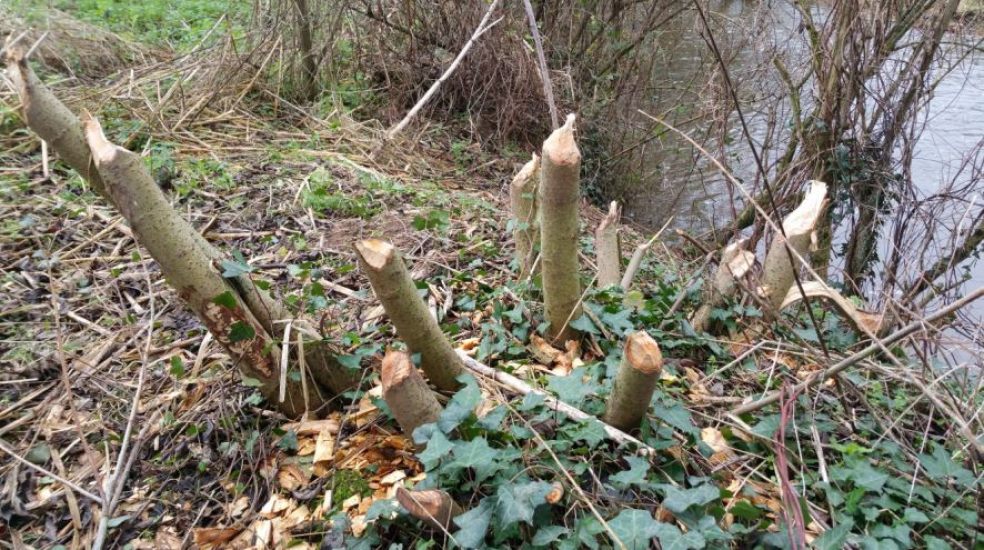
Fresh evidence of beavers discovered at four sites on East Devon river
Despite recent news headlines that a local beaver population had ‘disappeared’ from their East Devon home, a local wildlife charity is now claiming that it has evidence that they are very much alive.
In November the BBC reported the concerns of some local people that they had not had sightings of beavers on the River Otter for some weeks.
This ‘disappearance’ was then reported by national newspapers. However, Devon Wildlife Trust has now come forward with evidence which shows that the beavers are still there, although they may have relocated their homes, known as lodges, along the river.
Devon Wildlife Trust is leading the River Otter Beaver Trial – a five year study of what is believed to be the first population of breeding beavers living wild in the English countryside for several centuries. The charity has said that it is currently monitoring four ‘active areas’ along the river where it has seen fresh evidence of the beavers’ presence.
Mark Elliott is the Trial’s manager and said: “We knew the beavers had not ‘disappeared’ but it’s good to be able to report recent evidence showing that they are still active on the river. Beavers are mobile animals and it’s quite common for them to shift their lodges and feeding grounds. There’s lots of room for beavers on this river so it’s unsurprising that they have relocated from the places that we saw them last spring and summer.”
The beavers have proved popular with local people and have also attracted many wildlife-lovers to East Devon after the animals gained national coverage when their story was featured on BBC’s Springwatch programme. Devon Wildlife Trust’s own series of beaver walks along the river were fully subscribed in 2015 and now the charity says it plans to run more next year to meet demand.
However, winter is not the time to go beaver watching and any visitors are likely to leave disappointed.
Mark Elliott explained: “Beavers are largely nocturnal animals so they are difficult to see during winter when the nights are long. However, they will still be busy at this time building their lodges, preparing for mating in January and the birth of their kits in May. At this time we’re keeping the locations of the new beaver sites a secret to ensure that disturbance to the animals and local landowners is kept to a minimum.”
In February 2015 it was established that nine beavers were living on the River Otter. In May it is known that a breeding female gave birth to three kits taking the total to 12. This family were seen by many people throughout summer close to their lodge on a stretch of river near Ottery St Mary.
Devon Wildlife Trust is keen to record sightings of beavers to help it with its ongoing work monitoring the impact of the animals on local communities, local landowners and wildlife. Mark Elliott said: “As we move into the New Year and the daylight hours lengthen beavers will be active at dusk and dawn. If people do see them then it’s important they let us know so that we can get a clearer picture of the beavers’ numbers and locations.”
People with information can let the charity know if they see a beaver via email on beavers@devonwildlifetrust.org with details of the date, time, exact location and whether the beaver has a coloured ear tag.
The River Otter Beaver Trial receives no government funding. Devon Wildlife Trust is urging people to offer their support via its website www.devonwildlifetrust.org/devons-wild-beavers-appeal/













